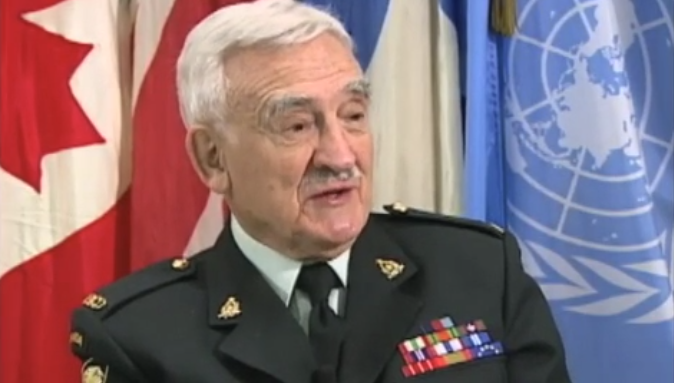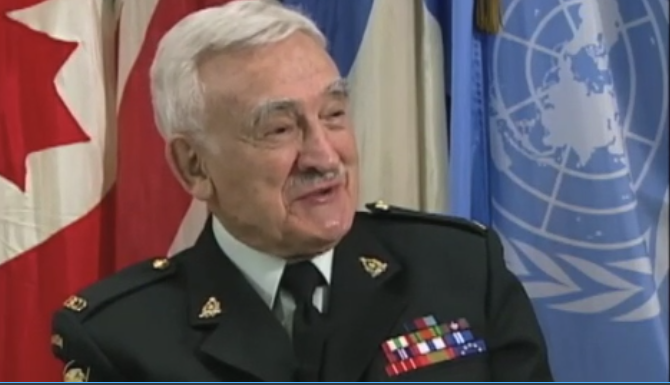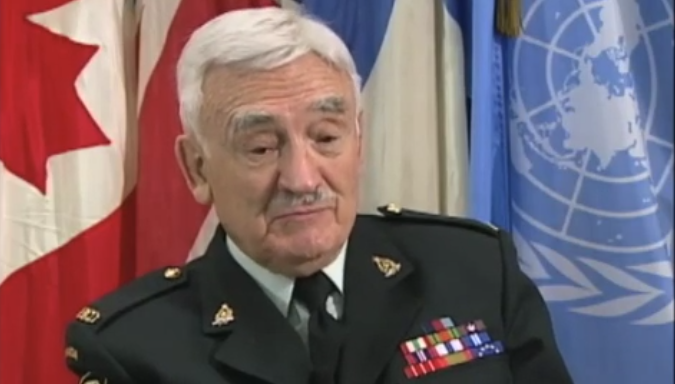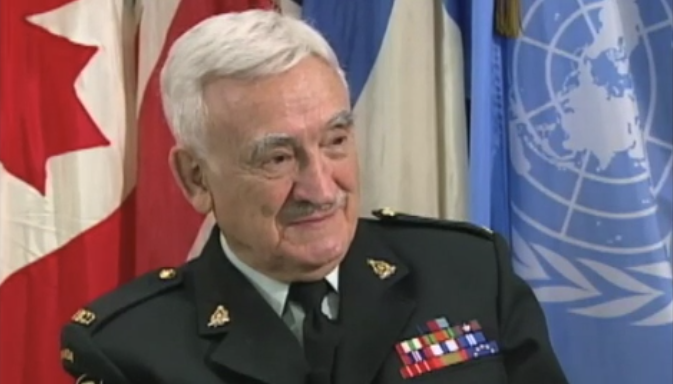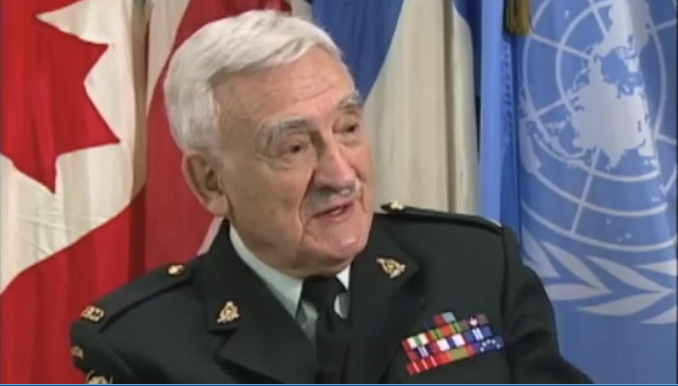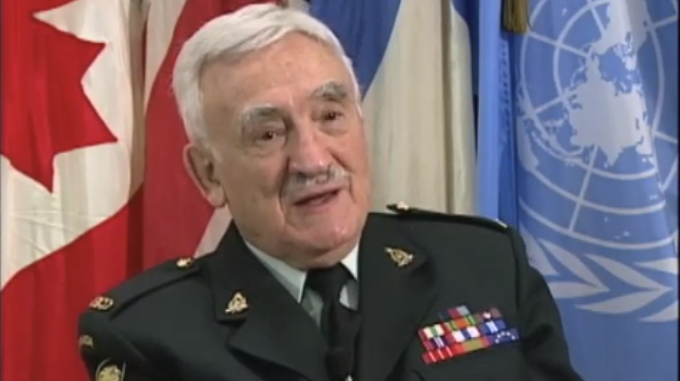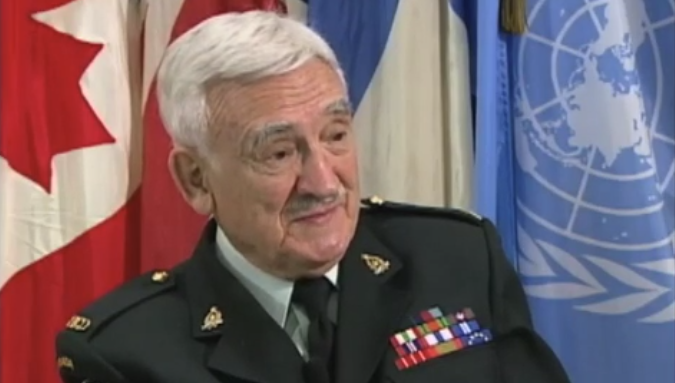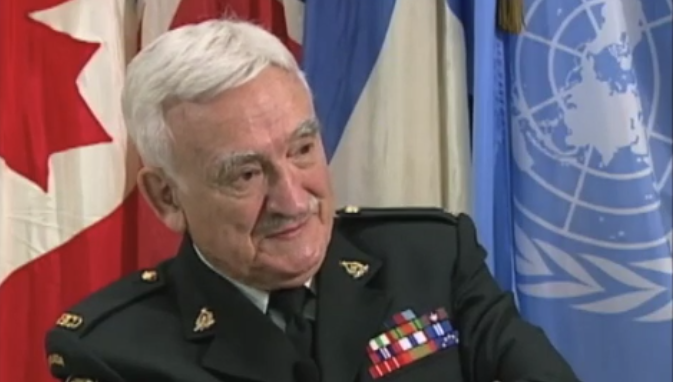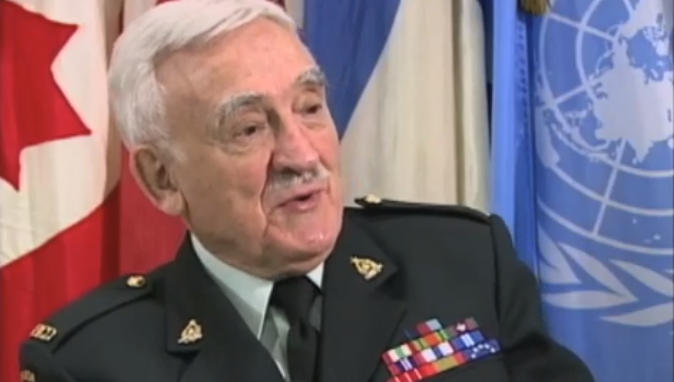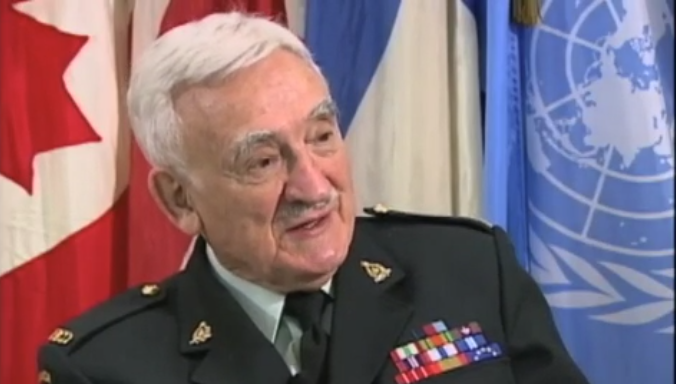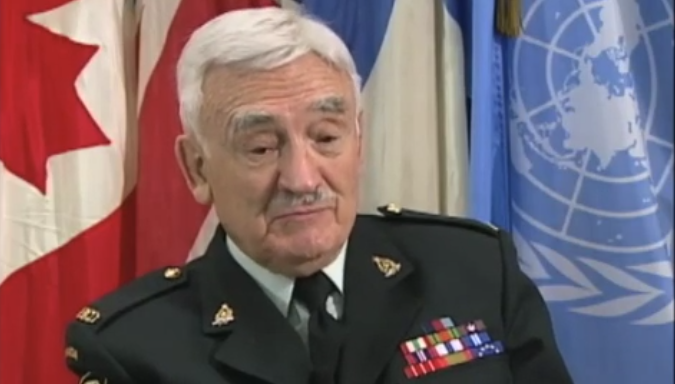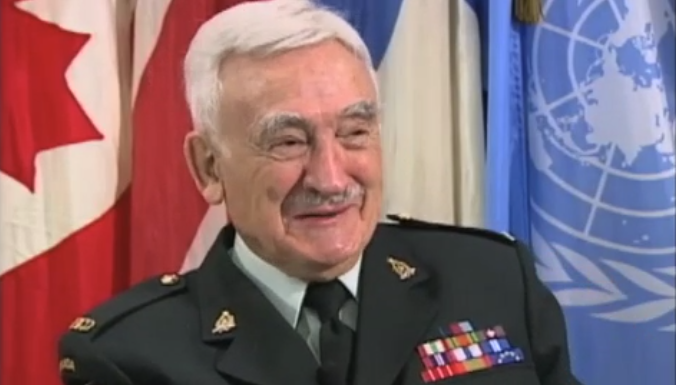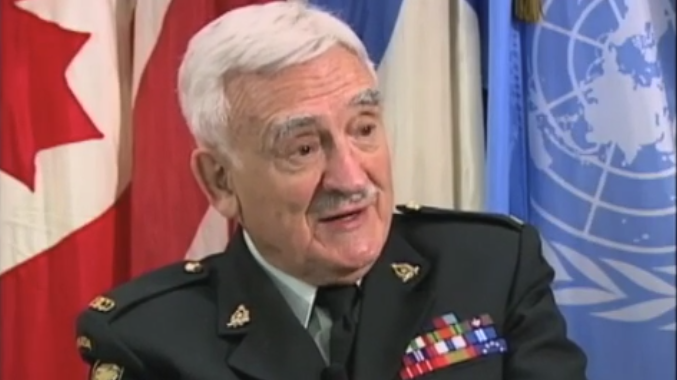Some Words For Children of Future Generations
Heroes Remember
Some Words For Children of Future Generations
Transcript
I’ve been going out speaking to high school students for about
ten years now and with the Remember Canada Program. It’s getting
intense. I used to speak to one or two. I am now speaking to
three or four or five. And I get all the questions that you are
talking about. In fact, I was at the Birden High School last
week. One-third of the class was black. They were ages 14 to
17, and they sure perked up when I pointed out to them that the
men that I was commanding were ages 17 to 20. So it was almost
this age. Then, after going through much of the material you’ve
just covered, one black boy said exactly that same thing to me,
“If war was so terrible, why would you go back again?” And I
gave him an honest answer, cause it’s part of an educational
process. I said, “Because the man I was fighting and the people
he was leading were trying to kill every Black and every Jew.
That’s why I went.” And one third of this class was black. You
should have heard the quiet that descended in that class. And I
thought to myself, “This is a lesson they’ve learned.” Would I
do it? I am doing it. Do I think it’s important? I wouldn’t
take time and it’s tiring and it’s a little emotional because
you never get over your reactions to some of the questions they
ask, and they ask very penetrating questions. It’s a job that
has to be done, (a) because it’s a part of our history, it’s
part of what makes us a Canadian, it’s a part of what shapes our
national and our individual character. And also, this is a
nasty world. It isn’t all peace and quiet. There are about 29
wars going on now, and my regiment at the moment has eight
people in Afghanistan, just starting to come back. These kids
need to know the truth and they’ll learn the truth if they study
history and if they’re told it, which they weren’t for two
generations, as you know. They’re just finally waking up and
doing it. I think it’s not only good, I think it’s essential.
These kids have to understand what kind of a world there is and
what kind and I don’t lean on responsibility. I don’t tell
them, “You will have to,” because I don’t think that’s a smart
thing to do either. I say, “This was the problem and this is
how we reacted and this is why we did it.”
And I think they’re smart enough to learn the lesson.
Description
Mr. Finestone describes what he would say to children of future generations.
Bernard J. Finestone
Mr. Finestone was born in Sacramento, California, and moved to Montreal when he was ten months old. His father served with the Royal Canadian Horse Artillery during the First World War. Mr. Finestone joined the COTC while he was studying at McGill University and when the war broke out he was in officer training. Mr. Finestone served as a tank commander in Italy and during the Italian Campaign, he was severely wounded. Mr. Finestone is an active speaker. He speaks to young Canadians about his military experiences and being a Jewish veteran.
Meta Data
- Medium:
- Video
- Owner:
- Veterans Affairs Canada
- Duration:
- 02:28
- Person Interviewed:
- Bernard J. Finestone
- War, Conflict or Mission:
- Second World War
- Location/Theatre:
- North America
- Branch:
- Army
- Units/Ship:
- 5th Armoured Division
- Rank:
- Lieutenant
Related Videos
- Date modified:



